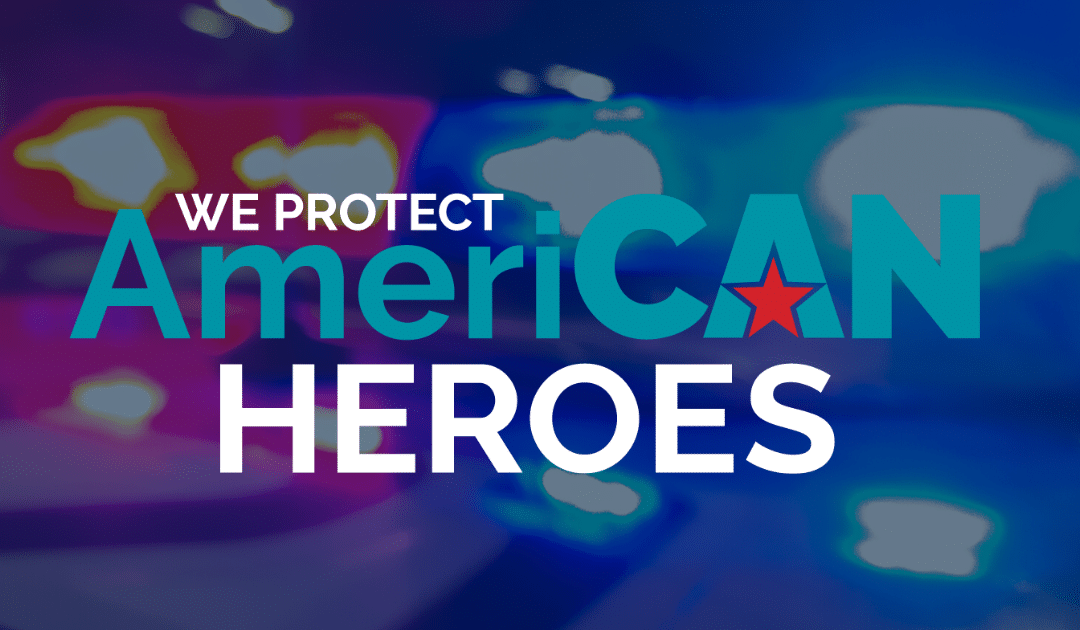Peace officers, firefighters, paramedics, and other emergency personnel are the American heroes on the frontlines of keeping our communities safe and in working order during this public health crisis.
They are working daily to ensure public safety, enforce laws, arrive first to emergencies, and provide reassurance to anxious communities. True to their sworn duty, they are stepping up to do what’s needed. Now is the time for the rest of us to step up and support them.
As cities and communities put plans in place to open their doors, here are 5 ways you can help your first responders.
Keep Your Distance
Across the country, various forms of shelter-in-place and social distancing orders will slowly be lifted. The basic idea of the orders was to limit exposure to others and ultimately, limit the spread of coronavirus infections. As life begins to return to it’s new “normal” it is important to remember to continue to keep your distance when out in public and avoid going out if you feel you are getting sick. By continuing to socially distance yourself in public and taking the necessary precautionary measures (like wearing a mask), you will help continue to slow the spread and you’ll also relieve officers’ time and energy in enforcement.
Don’t Abuse 9-1-1
Only call 9-1-1 if you, someone else, or property is in immediate danger. True emergencies include medical emergencies, violent crime, accidents, downed power lines, etc. Calls that are not actual emergencies overload the 9-1-1 system. That’s already an existing problem, and authorities worry it will escalate if the public health crisis continues, or gets worse, as cities begin to open their doors. If you have concerns about coronavirus symptoms that are not a medical emergency, contact your doctor or advice nurse.
Be Safe
Now is not the time for outdoor enthusiasts to put themselves in harm’s way by going rock climbing or wilderness hiking—even if it’s solo. Emergency evacuations and rescue cost resources and manpower. There’ll be time for adventures later; for now, follow the laws and be safe. Observe the speed limit, drive carefully, and be fire- and safety-conscious around your home. In short, remember that any emergency you create for first responders will strain their limited resources.
Call It In
If you need to report a non-emergency crime, file a police report, or add to an existing report, avoid going to the police station in person. Instead, submit your information online or over the phone. Avoiding walk-ins limit exposure risk to their ranks.
Be a Good Neighbor
Many of us know first responders and police officers personally. Whether they’re in your family, friend circle, or neighborhood, make a point to reach out and check-in. See if there’s anything you can do for them or their families. This could be something like dropping off food at the station, walking their dog, or just simply being someone to talk to. They have been and will continue to be overwhelmed—physically, mentally, and emotionally until this pandemic has resolved completely. Let them know you’re there for them.
Life will return back to normal, but to keep our first responder and healthcare systems from getting overwhelmed, it is important to remain vigilant on doing what we can to stay healthy and continue stopping the spread.
This article is furnished by California Casualty, providing auto and home insurance to educators, law enforcement officers, firefighters, and nurses. Get a quote at 1.866.704.8614 or www.calcas.com.
- Graduation – When to Remove Your Child from Your Auto Policy - May 18, 2023
- How to Prevent Catalytic Converter Theft - May 17, 2023
- How Much Does Home Insurance Cost? - May 17, 2023

